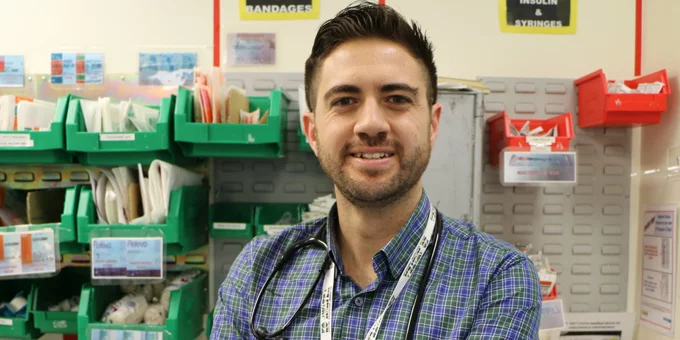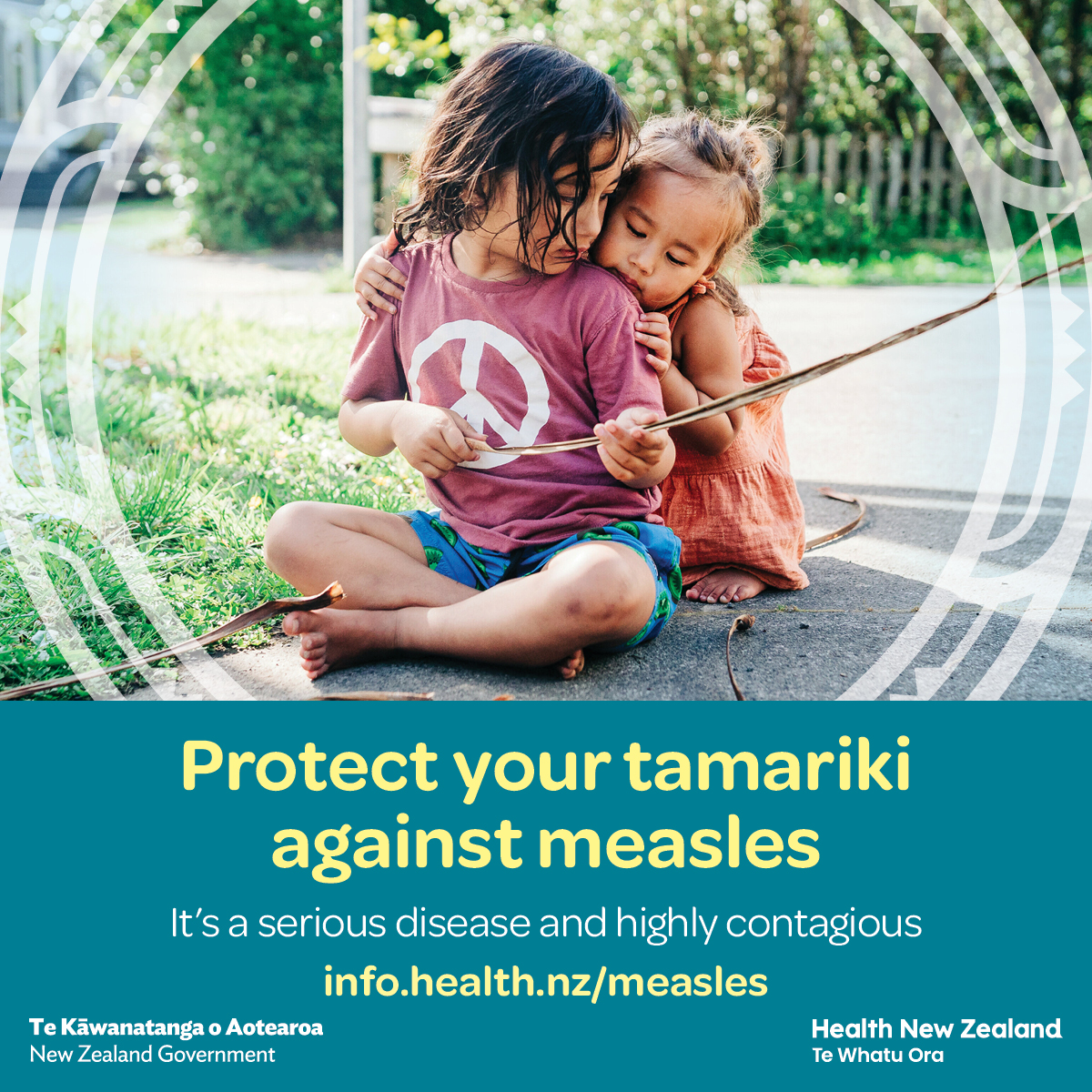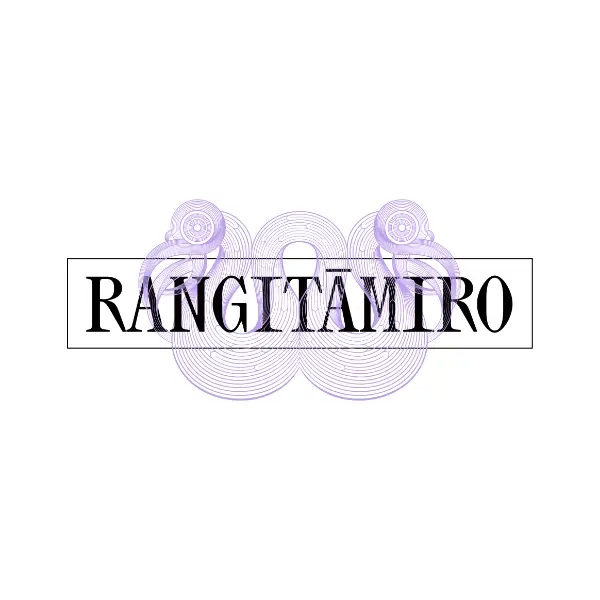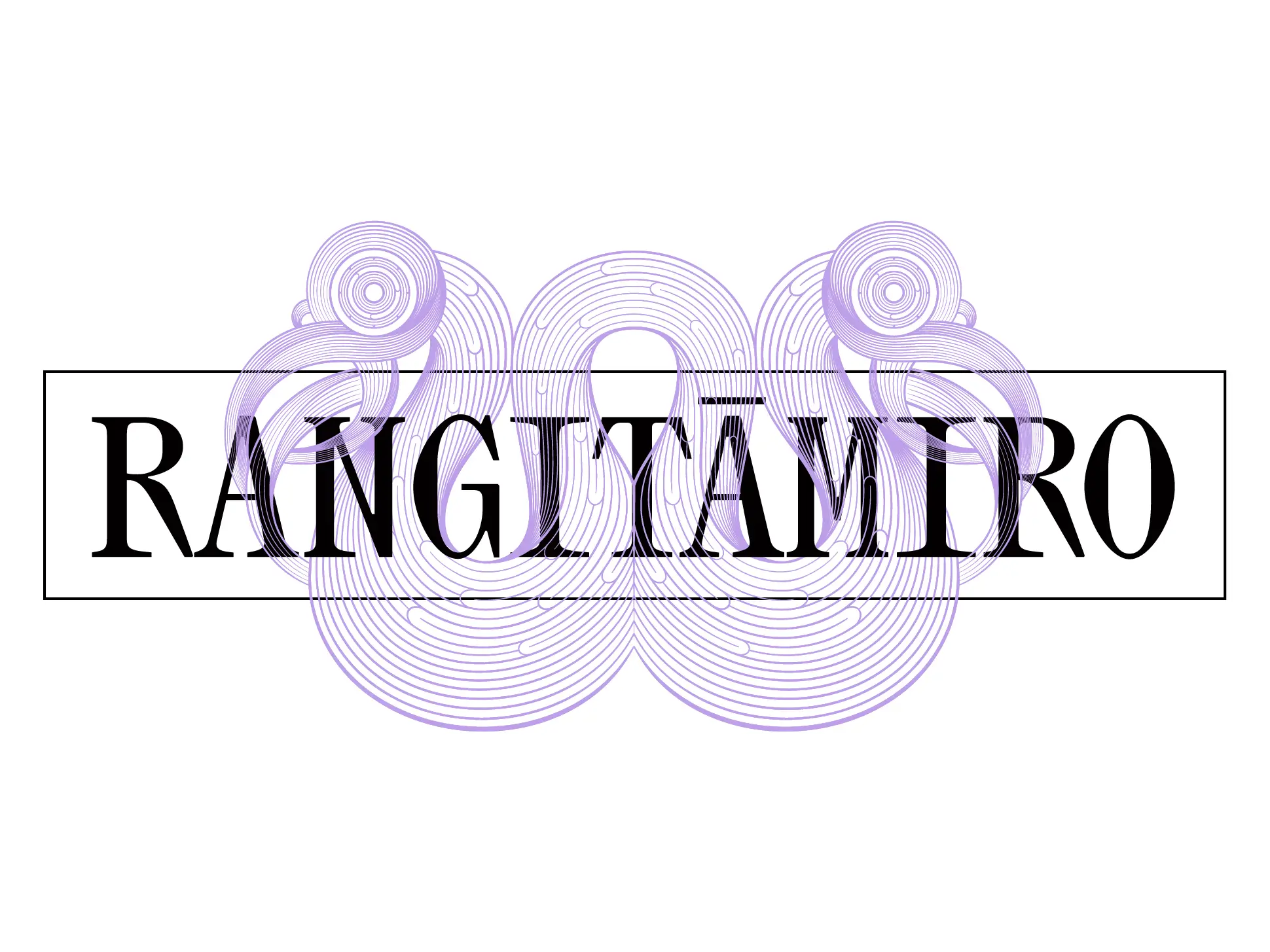Protecting whakapapa: Māori clinician calls for lift to tamariki vaccination rates
Our Board member and clinician, Dr Mataroria Lyndon (MBChB, MPH, PhD), was interviewed by Waatea to share whakaaro about Māori immunisation rates being significantly lower than the national average (62% vs 80%), which poses risks for preventable disease outbreaks like Measles and child health, particularly in regions like Waikato and Te Tai Tokerau.
Measles is back in Aotearoa — Protect your whānau now
A confirmed case of measles has been reported in Tāmaki Makaurau (Auckland). The person had recently returned from Asia on 29 April and became infectious on 2 May.
Te Tiratū Iwi Māori Partnership Board in the last 24 hours has received a further briefing from Te Whatu Ora – Health New Zealand about the outbreak. You can check for update on locations of interest HERE.
Tainui Waka Rohe: Tamariki Immunisation Rates Are Low
In our rohe, only 62% of tamariki under 2 years old are immunised against measles — well below the national target of 95%. This makes our communities vulnerable to outbreaks and puts pēpi, kaumātua, and immune-compromised whānau at serious risk.
Protecting Our Whakapapa: Immunise Against Measles
Measles is a serious, fast-spreading illness that can affect both tamariki and pakeke.
Why Immunisation Matters
- Measles spreads quickly and can be dangerous — especially for Tamariki under five.
- Adults can catch measles too, and risk passing it to mokopuna who are too young to be vaccinated.
- The MMR (Measles, Mumps, Rubella) vaccine is safe, effective, and has been used in Aotearoa since 1990.
- Two doses after the age of 12 months protect 99% of people from measles.
What You Can Do – Right Now
- Check if your tamariki or rangatahi have had 2 doses of the MMR vaccine.
- If you’re unsure whether you’re protected, especially if born after 1 January 1969 — get vaccinated.
- Encourage kōrero within your whānau and hapū about immunisation – sharing trusted info saves lives.
Free. Safe. Effective.
The MMR vaccine is free for all under 18s, and for adults eligible for funded healthcare.
It has an excellent safety record and does not contain any pork (porcine) products.
He Pēpi? He Māmā Hapu?
Pregnant wāhine can’t receive the MMR vaccine — so it’s important to make sure everyone around them is protected.
Measles during pregnancy can cause miscarriage and premature birth.
Who Can Get Vaccinated – and When?
Tamariki:
- 1st dose at 12 months
- 2nd dose at 15 months
- Missed a dose? Catch-up vaccinations are FREE
Pakeke (Adults):
- If you’re not sure you’re protected and were born after 1 Jan 1969, get vaccinated – it’s safe to have extra doses.
- If you’re pregnant, you cannot get the MMR vaccine — but it’s safe to get it after baby is born and while breastfeeding.
Overseas-born whānau:
- Had your vaccinations overseas? Check your records with a doctor.
- No records? Still get vaccinated — it’s safe.
- Some countries vaccinate babies before 12 months – they may need extra doses here in Aotearoa.
It doesn’t matter what your immigration status is — the MMR vaccine is FREE for all under 18
- Over 18? The vaccine is still free if you’re eligible for funded healthcare.
He Pātai?
- Talk to your doctor, nurse, or health provider
- Call Healthline – 0800 611 116
- Visit: info.health.nz/measles
- Learn more at: immunise.health.nz
Tō tātou haumarutanga kei a tātou — Our collective protection starts with each of us.
Calls for urgent action on dental equity
Coverage by The Waikato Local newspaper on the current situation in Taumaranui. Te Tiratū Iwi Māori Partnership Board (IMPB) listening to whānau has identified stark gaps in health access across the region—particularly in the areas of dental care.
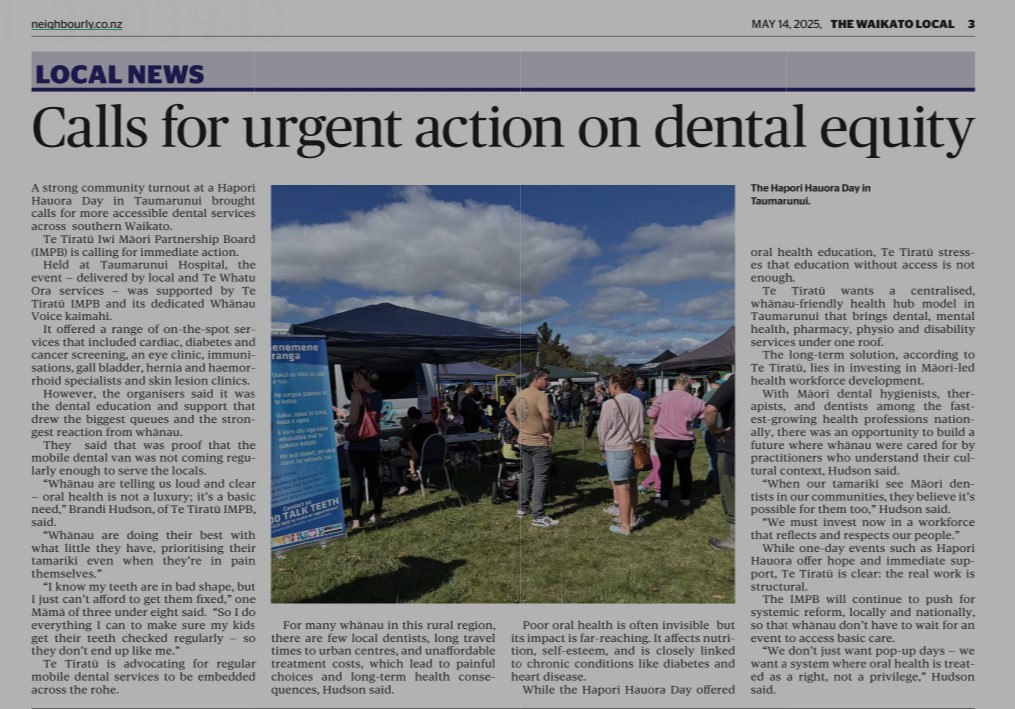
Data showing alarmingly low immunisation rates, delays, costs still undermining Māori Health
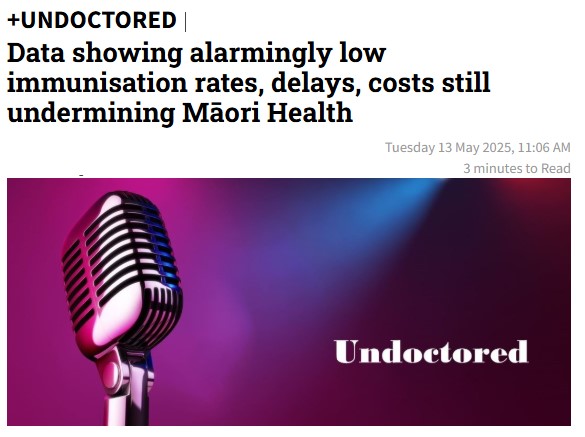
Te Tiratū Iwi Māori Partnership Board April Whānau Voice Report mirrored by Te Whatu Ora data has evidenced immunisation rates 33% lower than the national average, widespread inequities, long wait times, and unaffordable care still plaguing whānau Māori in its Tainui waka rohe.
Data showing alarmingly low Immunisation rates, delays, costs still undermining Māori health
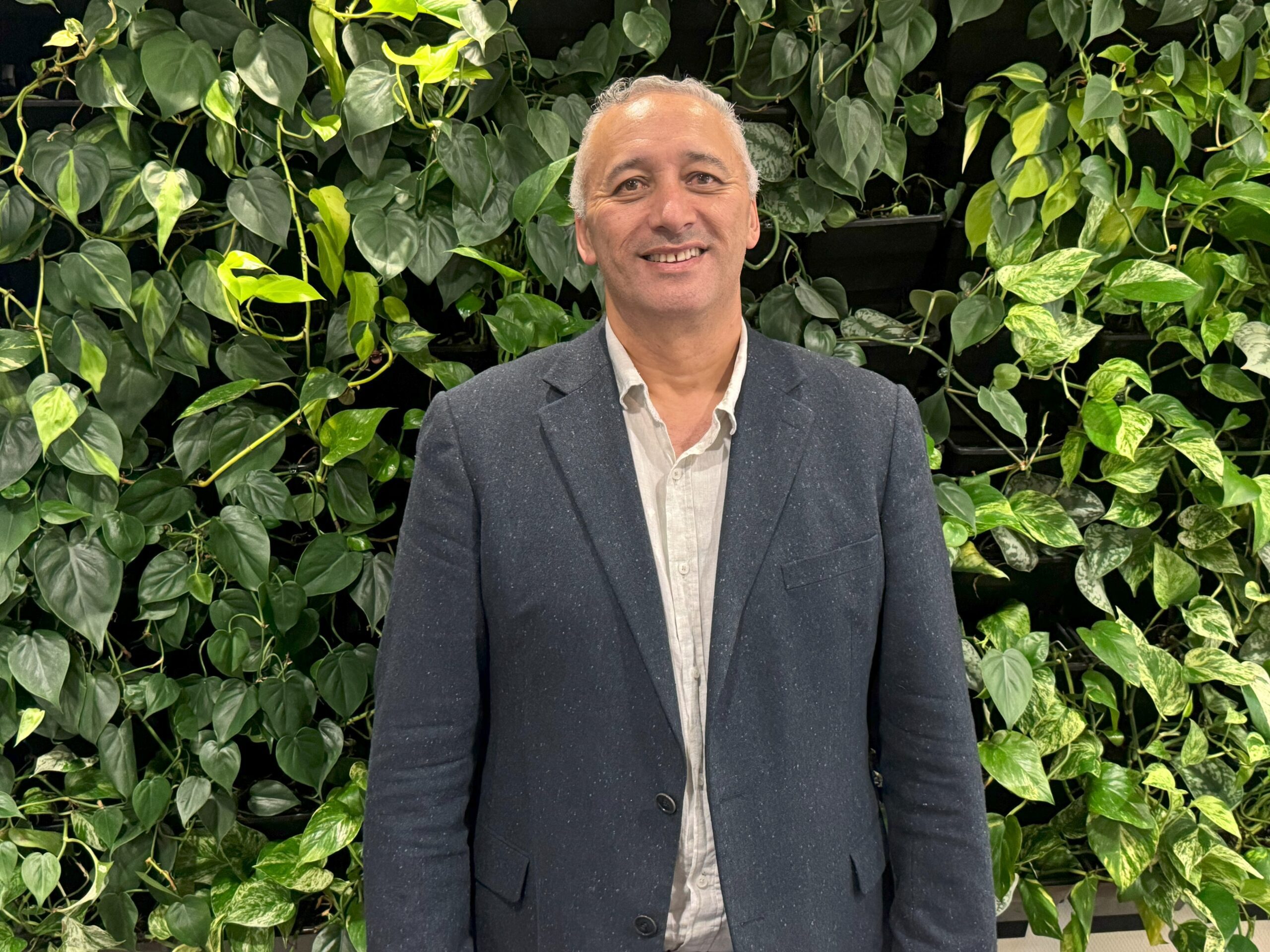
Photo: Co-chair of Te Tiratū Iwi Māori Partnership Board Hagen Tautari
Te Tiratū Iwi Māori Partnership Board April Whānau Voice Report mirrored by Te Whatu Ora data has evidenced immunisation rates 33% lower than the national average, widespread inequities, long wait times, and unaffordable care still plaguing whānau Māori in its Tainui waka rohe.
The Board, which holds legislative responsibilities under the Pae Ora (Healthy Futures) Act 2022 to represent Māori voices in health and monitor health system delivery of Te Whatu Ora, gathered lived experiences from 53 whānau across its rohe.
Behind every statistic is a whānau member struggling in silence.
The April Whānau Voice report revealed:
- 23% of whānau identified access to care—like GP appointments or surgeries—as their biggest barrier.
- 27% said cost was the major obstacle, forcing choices between essentials like kai and medication.
- 14% highlighted the need for more culturally safe, Māori-led care.
“Whānau are still waiting—too long—for care that should be timely and accessible,” said Hagen Tautari, co-chair of Te Tiratū Iwi Māori Partnership Board.
“One kuia told us her husband had life-saving heart surgery, but no specialist follow-up for almost a year. Another Māmā has waited two years for her child’s ear operation. These are not exceptions—they are systemic failures.”
Whānau are being left to manage complex conditions like diabetes, cancer, and heart disease with minimal support. Many avoid primary care due to cost and instead turn to overburdened emergency departments—even for non-urgent issues.
“We go to hospital because there’s nowhere else,” said another whānau.
In rural areas, lack of transport compounds the problem. Some whānau reported sitting in shuttle vans for hours to access basic services. Others gave up entirely.
Cultural safety also emerged as a major issue for whānau, ironically at a time when the government is looking to proactively remove cultural requirements from workforce regulation.
While Māori health workers were praised for their manaakitanga, whānau shared painful stories of clinical encounters with the non-indigenous workforce that lacked empathy, understanding, or cultural connection.
“We need more Māori nurses and doctors,” said one whānau. “They didn’t just treat us—they respected us.” But the report goes beyond what’s broken. Whānau were clear about what needs to change.
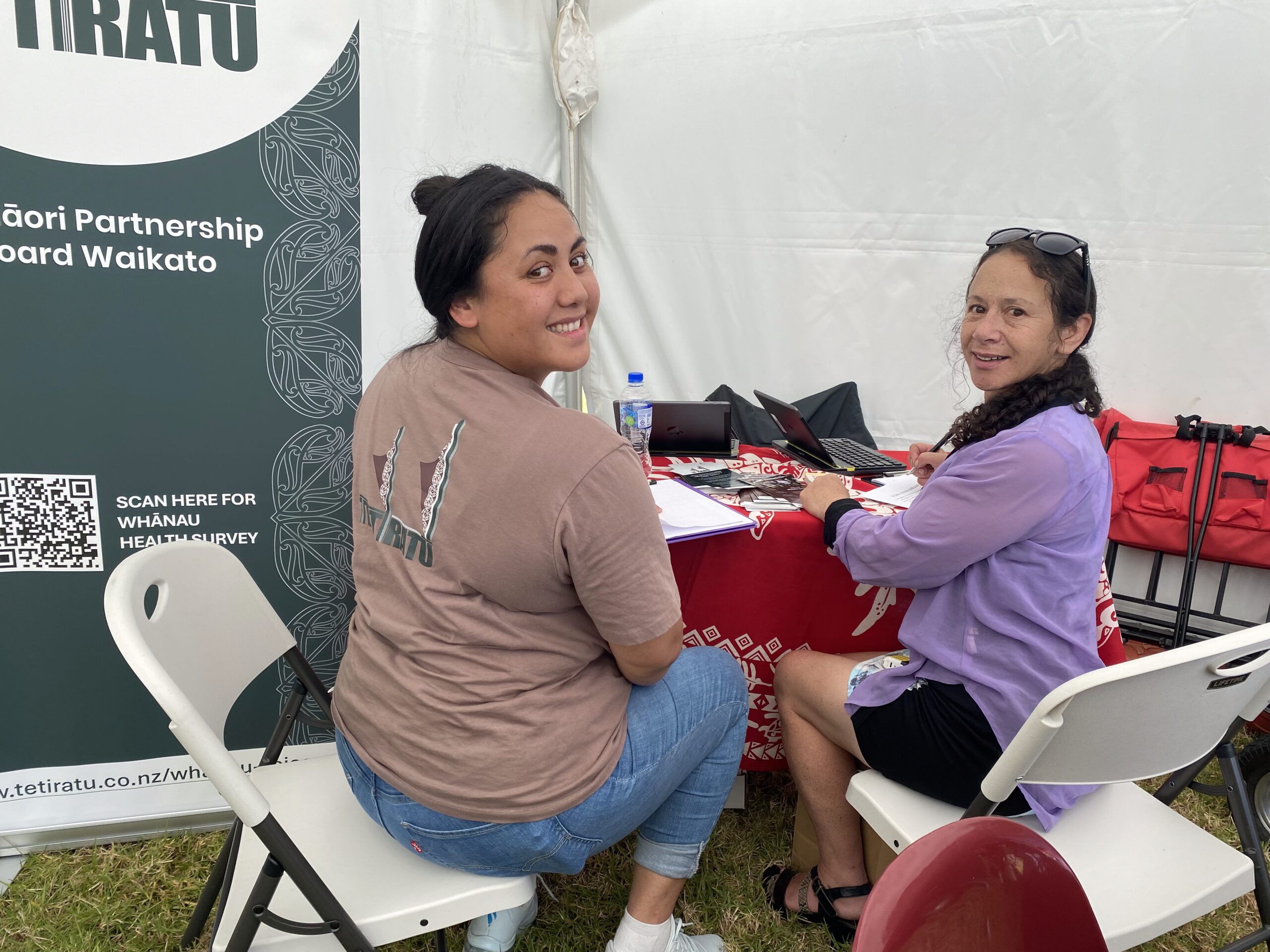
Photo: Raven Torea Whānau Voice kaimahi, of Te Tiratū Iwi Māori Partnership Board receiving whānau whakaaro
Priorities included:
- More doctors, more appointments, and reduced wait times (24%)
- Lower costs for basic care (27%)
- Improved transport and localised services (14%)
- More culturally grounded, Māori-led health care (14%)
- Better coordination between health services (13%)
- Holistic, whānau-centred support for housing, income, and wellbeing (10%)
Data from Te Whatu Ora for Waikato as at 31 December 2024 reinforces these concerns:
- HPV Vaccination rates for Māori aged 14 are only 46%, far from where they need to be to prevent sexually transmitted diseases and cervical cancer.
- Tamariki immunisation rates under 24 months are alarmingly low at 62%, well below the 95% national target, increasing the risk of preventable disease outbreaks.
- Emergency Department wait times are unacceptable: 27% of Māori wait over 6 hours before being admitted, transferred, or discharged—placing undue stress on kaumatua, māmā, and tamariki.
- For elective surgery, only 65% of Māori receive timely treatment, compared to 71% of Non-Māori—leaving 35% waiting over four months.
- Cancer screening rates are critically low:
- Bowel screening: only 46% for Māori aged 60–74
- Breast screening: 55% for wāhine aged 45–69
- Cervical screening: 58% for wāhine aged 25–69
- Cancer treatment within the 31-day target is met for only 62% of Māori, far below the 90% national goal.
“These numbers are not just data points—they’re warnings,” said Tautari. “They tell us that inequity is embedded and urgent.”
“Our care needs to reflect our world. Te ao Māori matters in healing,” one whānau member said in the Whānau Voice report.
Te Tiratū says the April report and supporting health data are a wake-up call to decision-makers across the motu. The stories and statistics are not just feedback—they are a call to action.
“We carry both a legal and moral obligation to ensure whānau voices are not only heard, but acted upon,” Tautari said.
“System change begins when we honour the truths our whānau are brave enough to share and cultivate service delivery grounded in manaakitanga, equity, and tino rangatiratanga.”
Opinion - The Spinoff
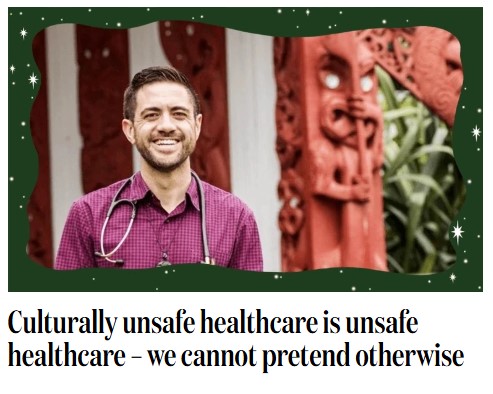
As a doctor, medical educator and iwi health advocate, Mataroria Lyndon has seen how cultural safety transforms health outcomes. The government’s proposal to remove cultural requirements from workforce regulation, he writes, risks undoing decades of progress and putting lives at risk.
Whānau Ora 2.0 rolls out in July
Rangitāmiro is a collaborative including Te Tiratū Iwi Māori Partnership Board with the National Hauora Coalition, and Ngaa Pou Hauora o Tāmaki Makaurau Iwi Māori Partnership Board. As the new Whānau Ora commissioning agency for the upper North Island, Rangitāmiro carries significant potential to address the longstanding crisis of health inequities for Māori.
Ngaa Pou Hauora o Tāmaki Makaurau Iwi Māori Partnership Board has launched its Community Health Plan aimed at tackling deep-rooted health inequities for whānau. With Te Tiratū Iwi Māori Partnership Board in the newly formed Rangitāmiro Whānau Ora commissioning agency, the boards have significant influence to lead meaningful change across the upper North Island.
Ngaa Pou Hauora o Tāmaki Makaurau Iwi Māori Partnership Board Chief Executive Simon Royal says Whānau Ora 2.0 will be ready to launch in July, promising a whānau-led, patient-focused approach that reflects the real needs of Māori communities — from overcoming system failures to addressing cultural gaps in service delivery.
Norton neighbourhood shares a few home truths
This weekend, in the heart of Norton, Hamilton, our Whānau Voices kaimahi joined a neighbourhood Hauora Event organised by the Wairiki Whānau Mentoring Trust, a Māori-led organisation dedicated to creating meaningful change for whānau living at the margins across the Waiariki and Waikato regions.
It provided a positive, safe and non-judgemental space where whānau could speak openly—free from stigma or blame. This environment allowed them to reconnect with their true selves, laying the foundation for healing and unlocking the potential for deep, transformational growth.
The gathering brought together whānau, local hapori, and the local MP, Tama Potaka. His presence highlighted the importance of connecting political leaders with the real experiences of whānau at the flax-roots willing to share their kōrero about the challenges they face within the health system.
Our Whānau Voice kaimahi were there specifically because Norton is a community marked by pockets of higher deprivation, often tied to long-standing inequities. These conditions create unique challenges for our people that need to be heard firsthand.
“They didn’t know who we were,” said Megan Tunks from Whānau Voice Te Tiratū Iwi Māori Partnership Board. “But we had more conversations in person with whānau, rather than relying on questionnaires.”
The stories shared revealed the harsh realities whānau face: “Whānau told us they’re waiting weeks just to see a GP—if they can afford it at all. Some are turning to A&E because urgent care is too expensive, and regular appointments are too short to get the help they need,” Megan said.
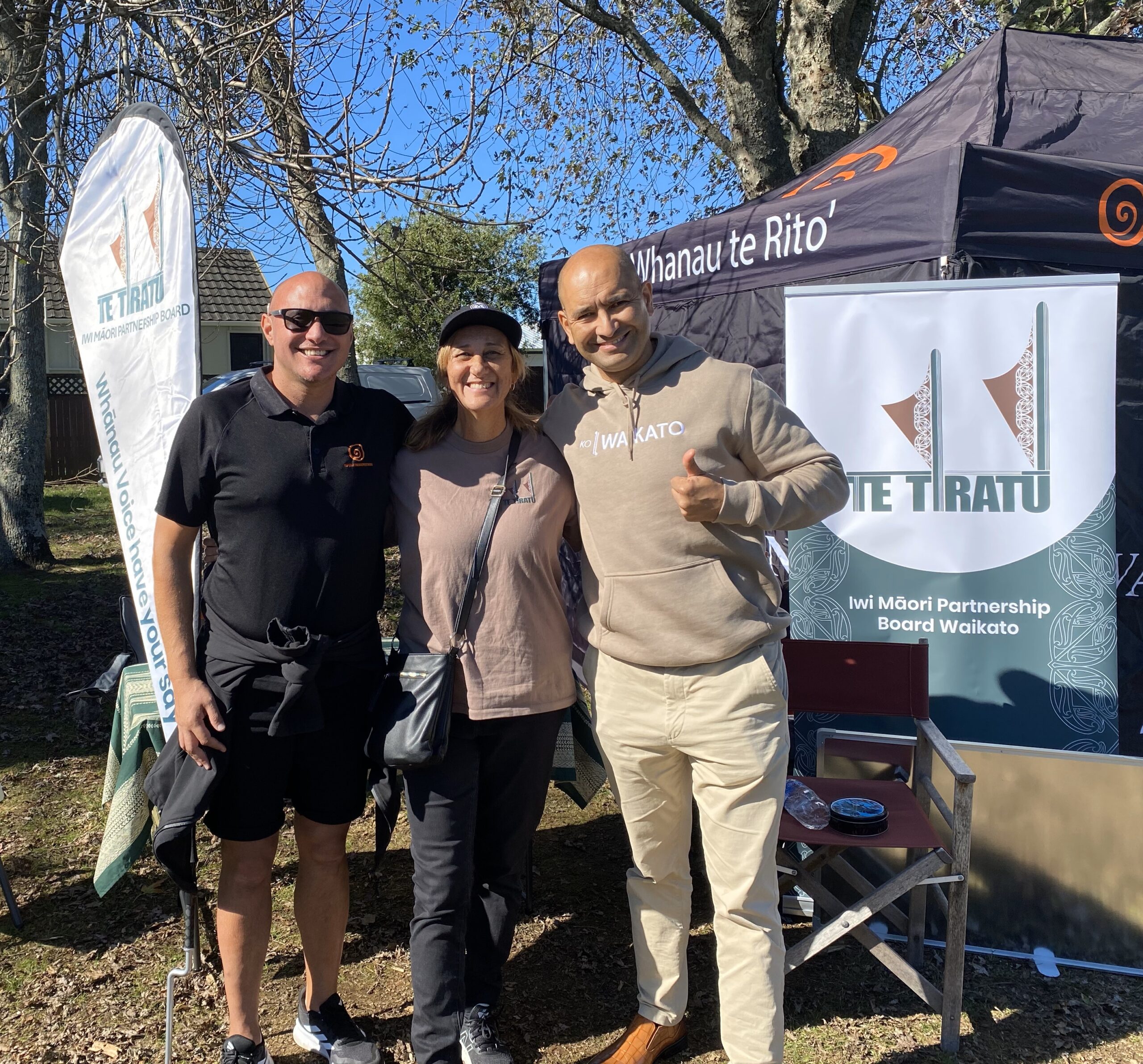
Photo: Waata Heathcote Chief Operating Officer Wairiki Whānau Mentoring Trust, Megan Tunks Whānau Voice kaimahi Te Tiratū Iwi Māori Partnership Board and the local MP, Tama Potaka.
One particularly poignant story was of a kaumātua who had suffered multiple strokes but was left waiting at a clinic with no clear support. “These stories speak to something deeper—it’s not just about access; it’s about trust and the way services engage with our whānau.”
For many, these struggles go beyond the healthcare system. “Our people aren’t just talking about barriers; they’re talking about survival—housing struggles, accessibility blocks, healthcare gaps, and the hopes they carry for their tamariki and mokopuna.”
Megan believes this feedback reveals a clear need for more mobile services that meet whānau where they are at. Hauora Māori services, she said, provide a safe and trusted space where whānau feel less judged and more understood.
This shift towards more accessible, mobile, and culturally supportive health services is vital for creating meaningful change in the lives of whānau.
Throughout the hui, common themes emerged around the need for culturally safe services, wraparound whānau support, and systems that honour te ao Māori ways of being.
These whakaaro are invaluable, and the voices captured will inform local priorities, service design, and future planning—ensuring that whānau are not just consulted but are co-creators of the solutions that impact their lives.
When whānau voices are elevated, transformation is not only possible, it is inevitable.
Ngā mihi nui to all who shared their time, courage, and whakaaro.
Turning whānau truths into system change - April 'whānau voice' report recap
At Te Tiratū Iwi Māori Partnership Board, our role under section 29 of the Pae Ora (Healthy Futures) Act 2022 is clear: to represent Māori voices—and to champion better health outcomes, better services, and better ways of working with the health system that reflect our realities, values, and aspirations.
Our April Whānau Voice Report lifts the lid on what’s happening in our homes, clinics, and hospitals—and what our whānau are calling for. We heard from 53 in our rohe, mostly Māori, mostly wāhine.
Behind every percentage and piece of data is a story—a lived experience of a whānau member trying to navigate a health system that too often feels cold, distant, and unaffordable.
“We’re still waiting.”
Too many whānau are waiting too long for care—GP appointments, referrals, or surgeries. Many whānau are living with multiple long-term illnesses—diabetes, cancer, heart disease—and are expected to manage complex conditions without enough support.
- 23% of respondents said the availability of healthcare is their biggest barrier.
- Many also shared that GP appointments are hard to get, and they often resort to visiting the hospital for non-urgent care.
One kuia shared how her husband finally had life-saving heart valve surgery—but no cardiac follow-up. “No specialist for his 6-week check-up—he wasn’t seen for 11 months. They found a growth and a tear around the valve.” She says they were lucky. What if they hadn’t pushed?
Whānau told us delays in accessing care—from GPs to surgery—are harming their health. “I’ve been waiting for gallbladder surgery since June 2023. It’s stopping me from going back to work.”
A mother said she’s been on the waitlist for her child’s ear operation for two years. Her tamariki has asthma, and their whare is cold. “Keeping the house warm is hard,” she said. “But we try.”
Another was battling on all fronts saying, “I’m dealing with diabetes, AFib, rheumatic fever, dementia, and a family history of cancer.” The lack of mental health services is not meeting the needs of whānau either —especially for tāne and tamariki.

Photo: Raven Torea Whānau Voice kaimahi Te Tiratū Iwi Māori Partnership Board and local whānau giving whakaaro.
“Not enough money.”
This is the silent crisis. Whānau are struggling to afford warm homes, healthy kai, and basic healthcare. For many, choosing between kai and medication is a painful daily decision.
- 27% of whānau said the cost of care is their biggest health barrier.
- That’s more than one in four.
The cost of living came up more than any other challenge. One father shared:
“I work seasonal jobs. I can’t always afford the doctor. So I wait.”
Another said: “Appointments, prescriptions, fuel to get there—it’s too much. Sometimes we choose between kai and meds.”
This is more than just money. It’s about dignity. About being forced to choose between filling a prescription or putting food on the table. About delaying care until it’s urgent.
“We go to the hospital because there’s nowhere else.”
When GP appointments aren’t available, hospitals fill the gap—especially for rural whānau.
- Many whānau told us they use ED services for non-emergencies.
- Others described long wait times, lack of transport, and stress.
Some said they waited from 8-11 hours at A&E—long, draining hours for kaumātua, pēpi, and māmā. Rural hospitals had shorter wait times 3-6 hours. Some had to give up and go home. Others sat in shuttle vans all day to reach the nearest hospital, with no breaks, no support, and no energy left.
“We’re rural,” one koro said. “It’s hard to get anywhere. The system wasn’t built for people like us.”
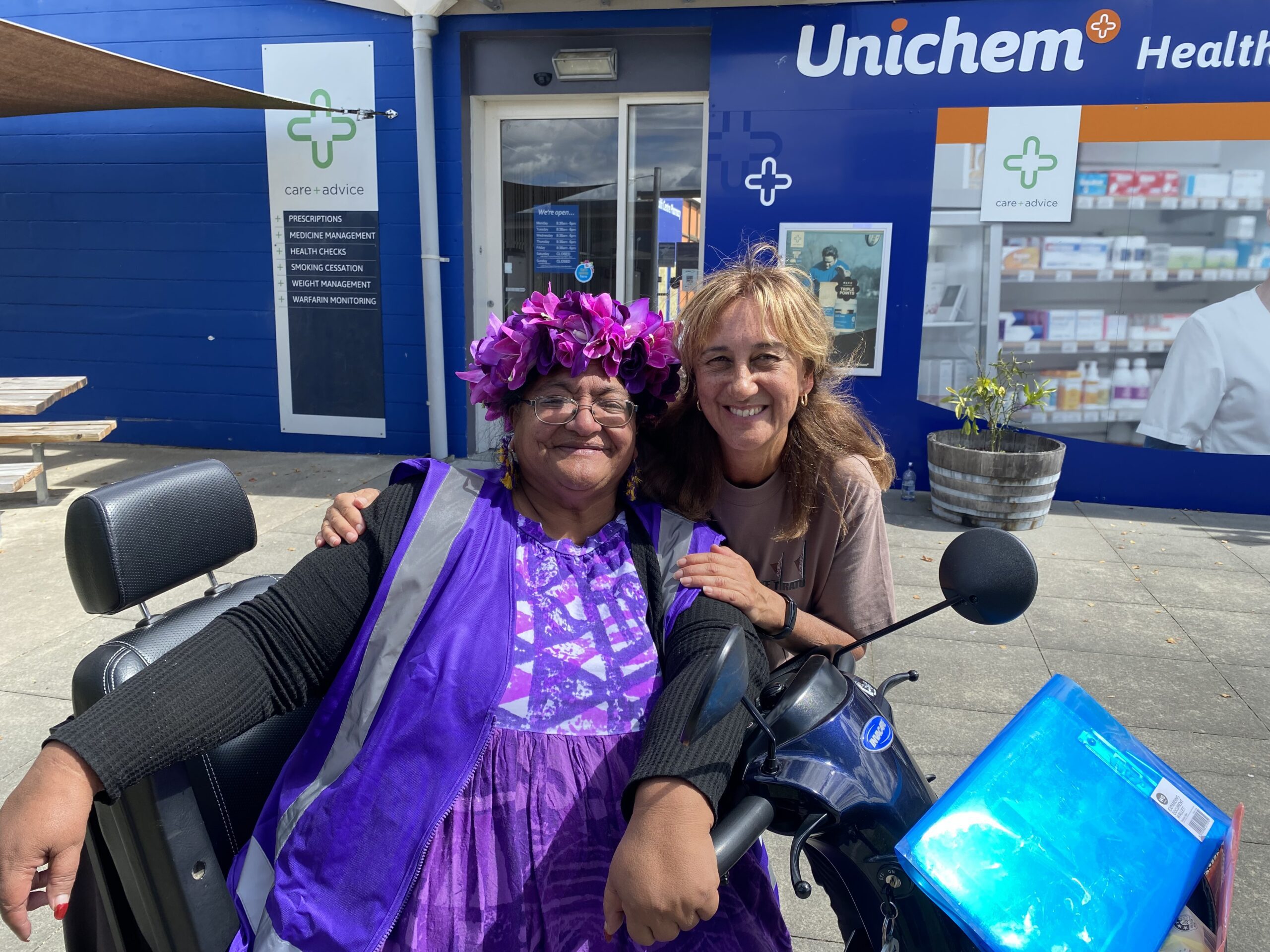
“We want doctors who understand us.”
Whānau told us they feel safer and heard when care is delivered by people who understand their world, their tikanga, their reo.
- 14% of respondents said the cultural safety of care needs to improve.
- Many said Māori health workers and services made a positive difference.
“We need more Māori nurses and doctors. They get us. They listen. They didn’t just treat us. They respected us.”
“When we went to a kaupapa Māori clinic, they treated us with mana. It wasn’t just the medicine—it was the whole experience.”
But too often, not everyone receives that experience and the opposite is true. One whānau shared a story about caring for their kaumātua in hospital: “The immigrant nurse lacked empathy. No pillow, no kindness, no empathy – it hurts.”
“We’ve got ideas, if someone would listen.”
Whānau didn’t just tell us what’s wrong—they told us what would help. Their priorities were consistent, clear, and backed by strong numbers:
- 24% of whānau said we need more doctors, more appointments, and shorter wait times. Our people are tired of waiting weeks—or months—to be seen.
- 27% said the cost of care is too high. Lower costs, especially for low-income families and those not eligible for subsidies, would make a huge difference.
- 14% called for better transport and services closer to home especially for rural and remotely based whānau, distance is a major barrier. More transport options and local services are needed.
- Another 14% asked for more culturally safe, Māori-led care—where whānau feel seen, heard, and respected.
- 13% want services that talk to each other, with better coordination and communication between providers, clinics, and hospitals.
- 10% reminded us that health doesn’t exist in isolation. They want whānau-centred, holistic support that includes safe housing, stable income, kai, education, and justice.
“Our care needs to reflect our world. Te ao Māori matters in healing.”
“It’s not just one thing—it’s everything.”
Whānau know what good care looks like. The system just needs to catch up.
These stories are not isolated—they are consistent, urgent, and reflect the reality that for many whānau, the health system is not delivering what it promised.
Te Tiratū carries a legal and moral responsibility to ensure our Whānau Voice reporting is heard. We will continue to advocate for a health system grounded in manaakitanga, equity, and tino rangatiratanga.
Removing cultural requirements from healthcare regulation would be "irresponsible, inequitable, and dangerous"
Our Board member, Dr Mataroria Lyndon (MBChB, MPH, PhD), is a Senior Lecturer in Medical Education at the University of Auckland, where he trains health professionals in cultural safety. He was interviewed by Waatea to explain his submission, Response to Proposal to Remove Cultural Requirements from Regulation
